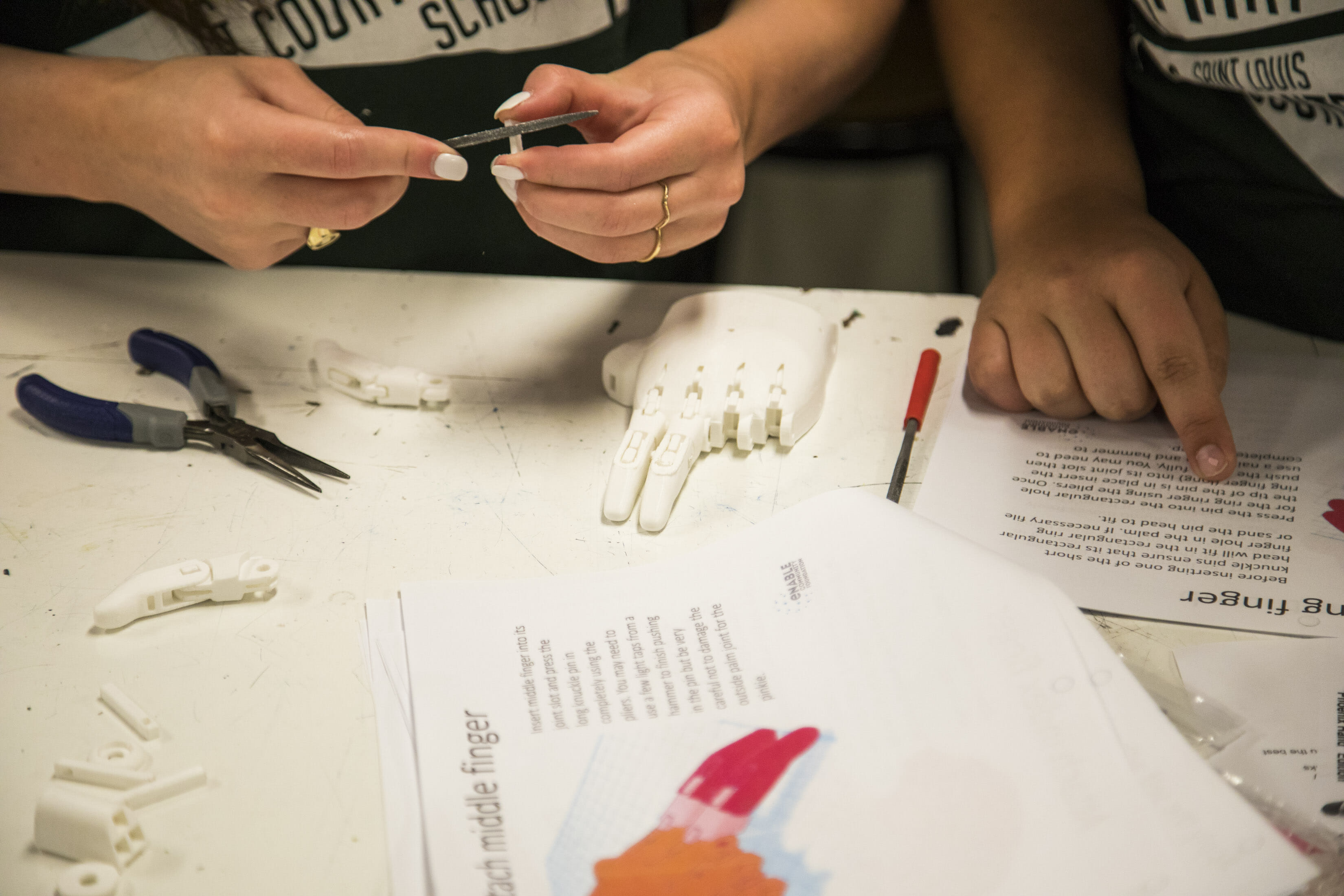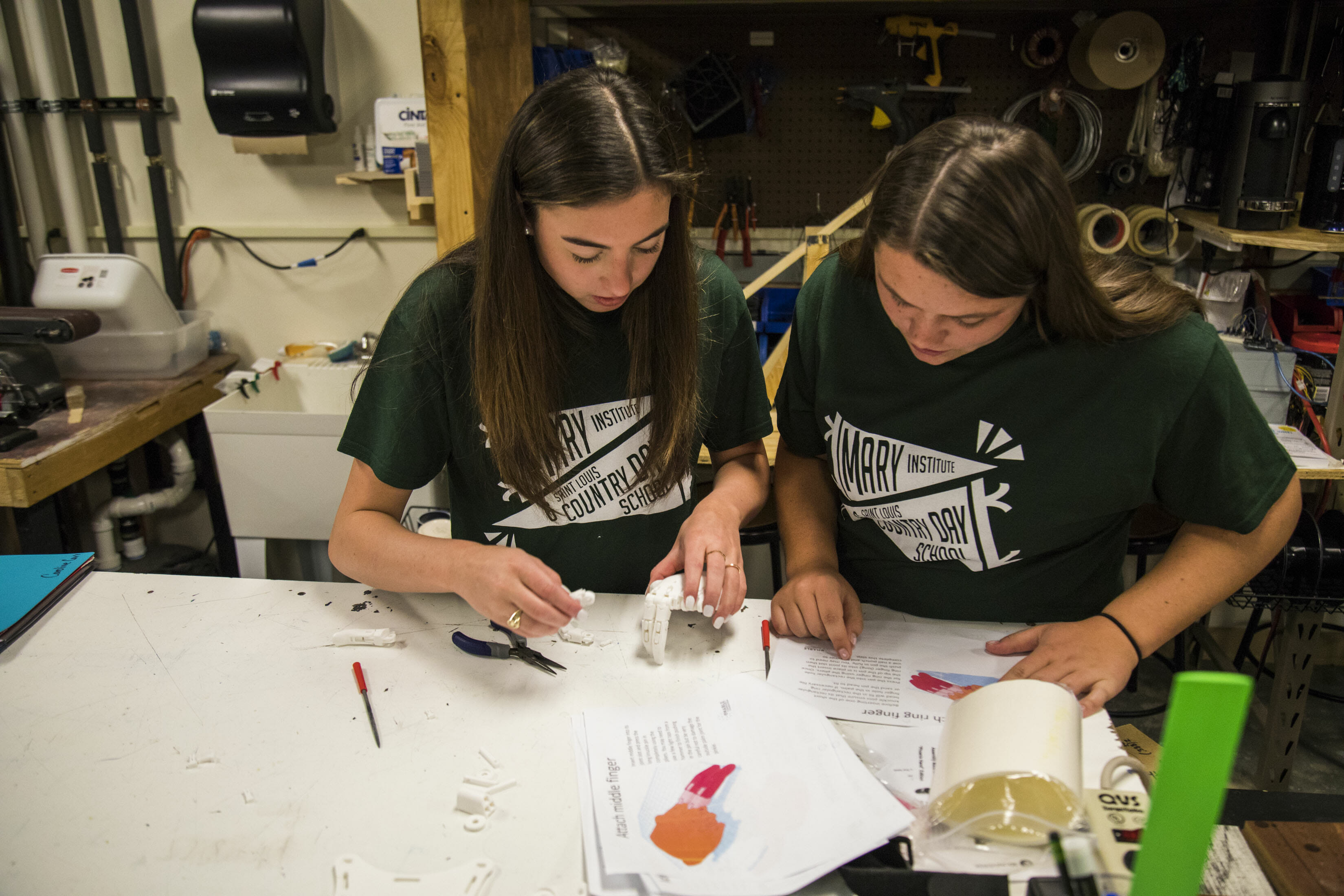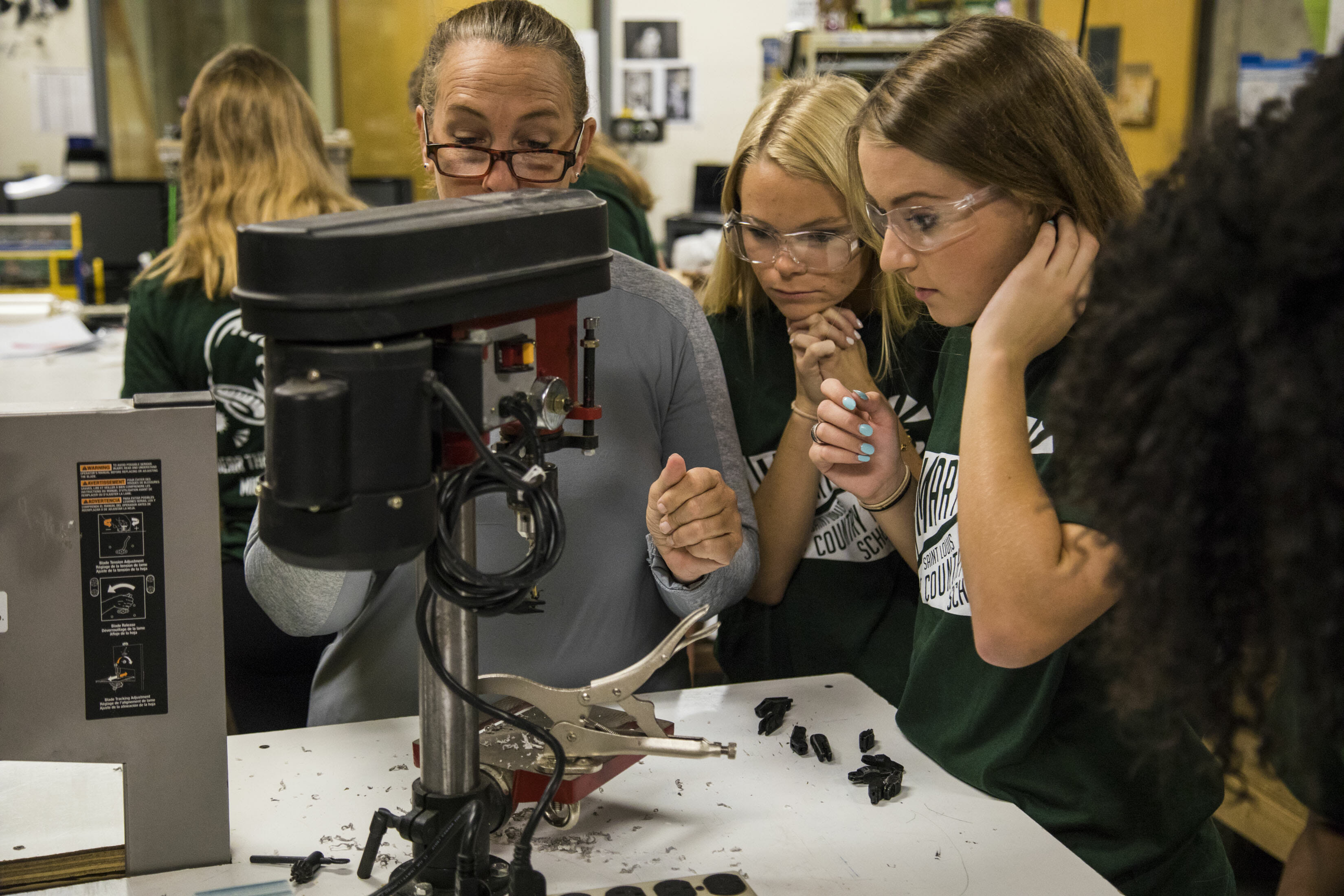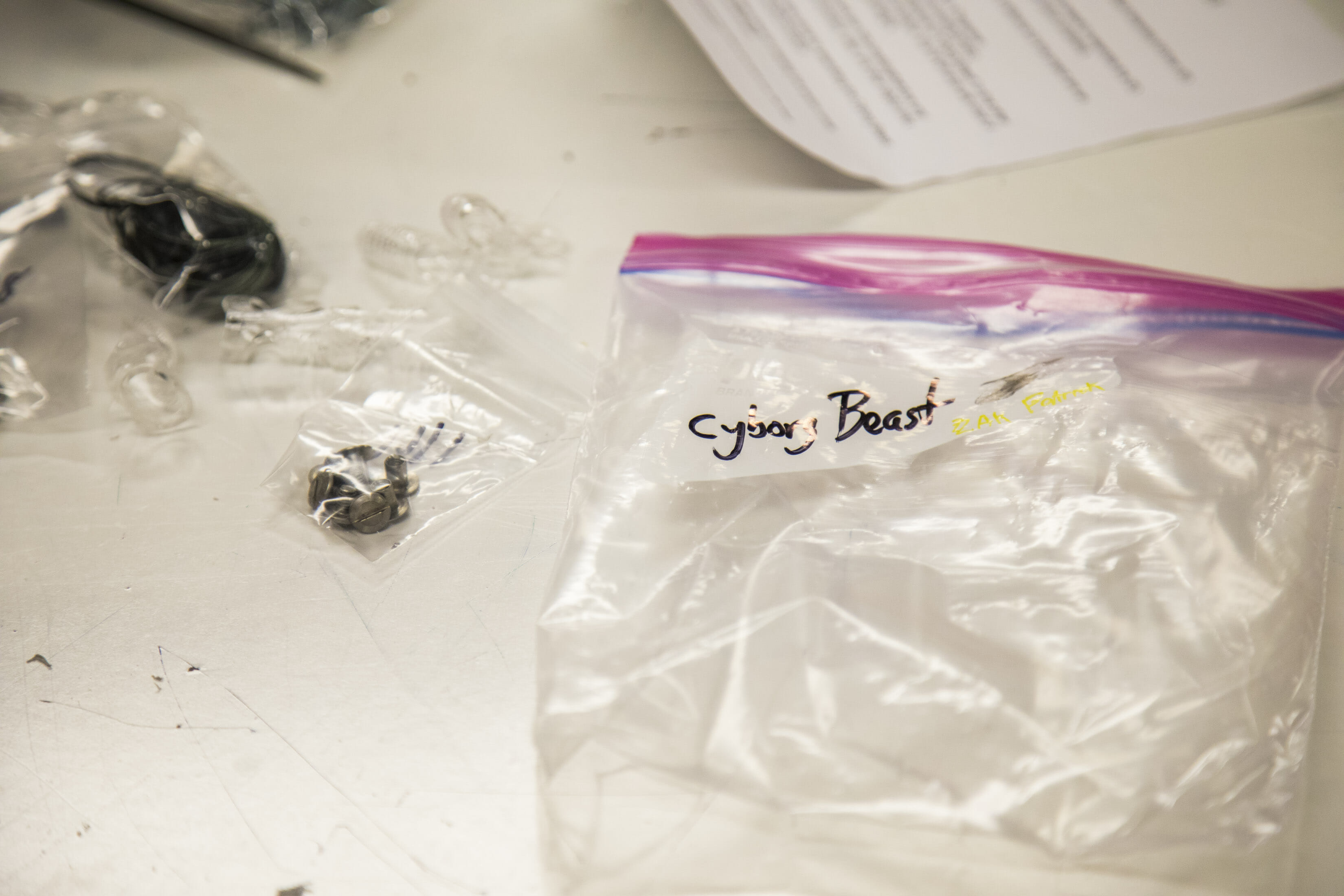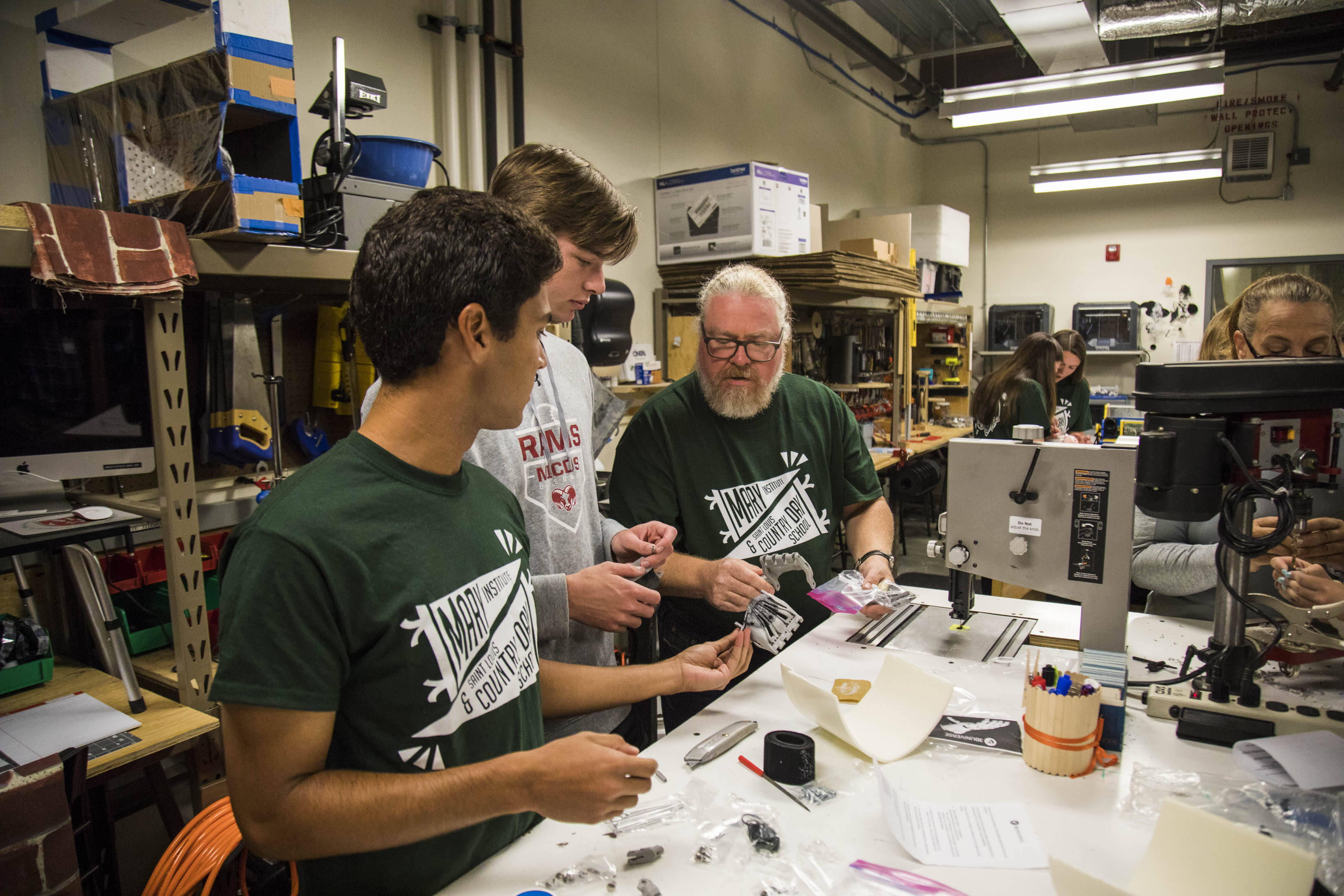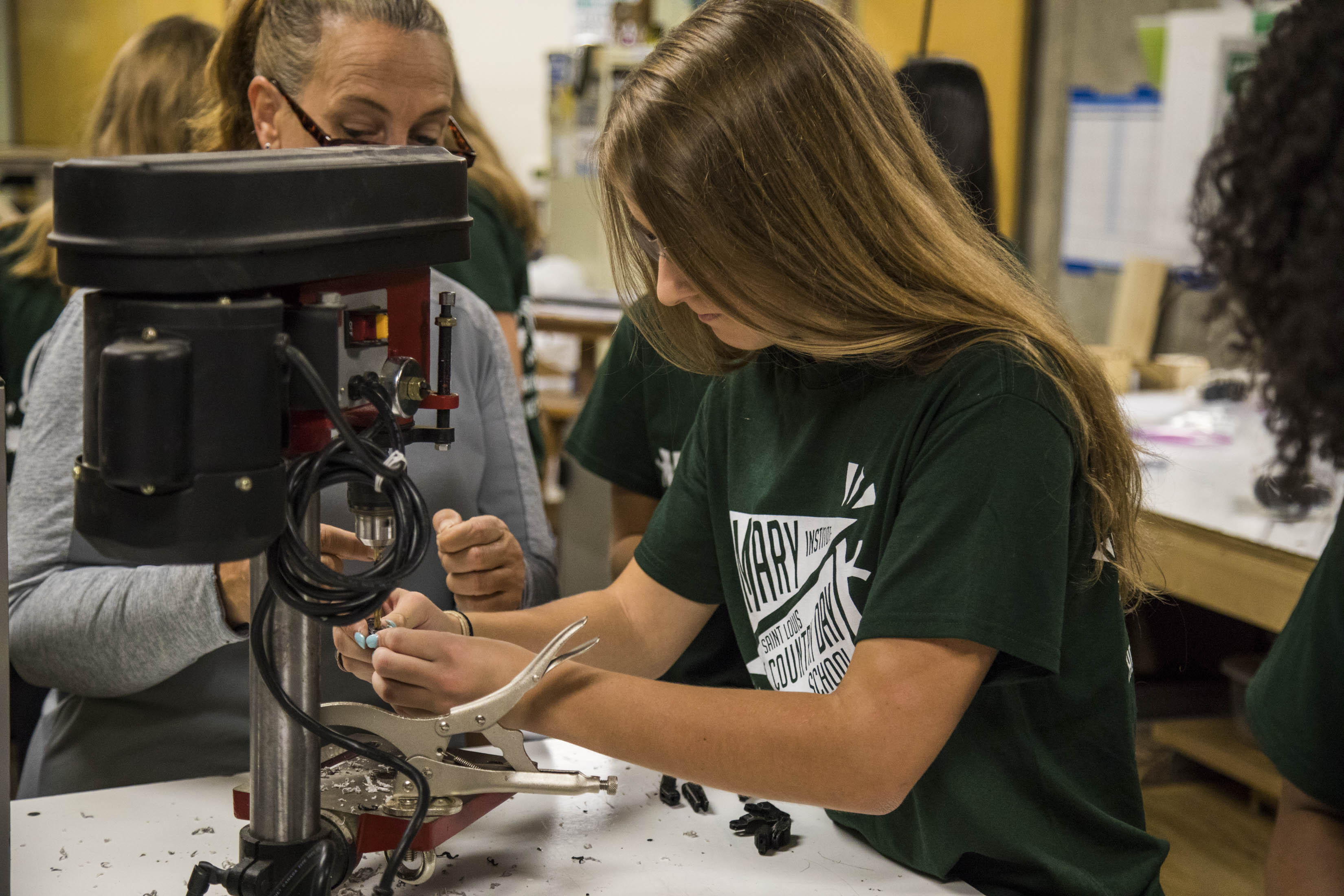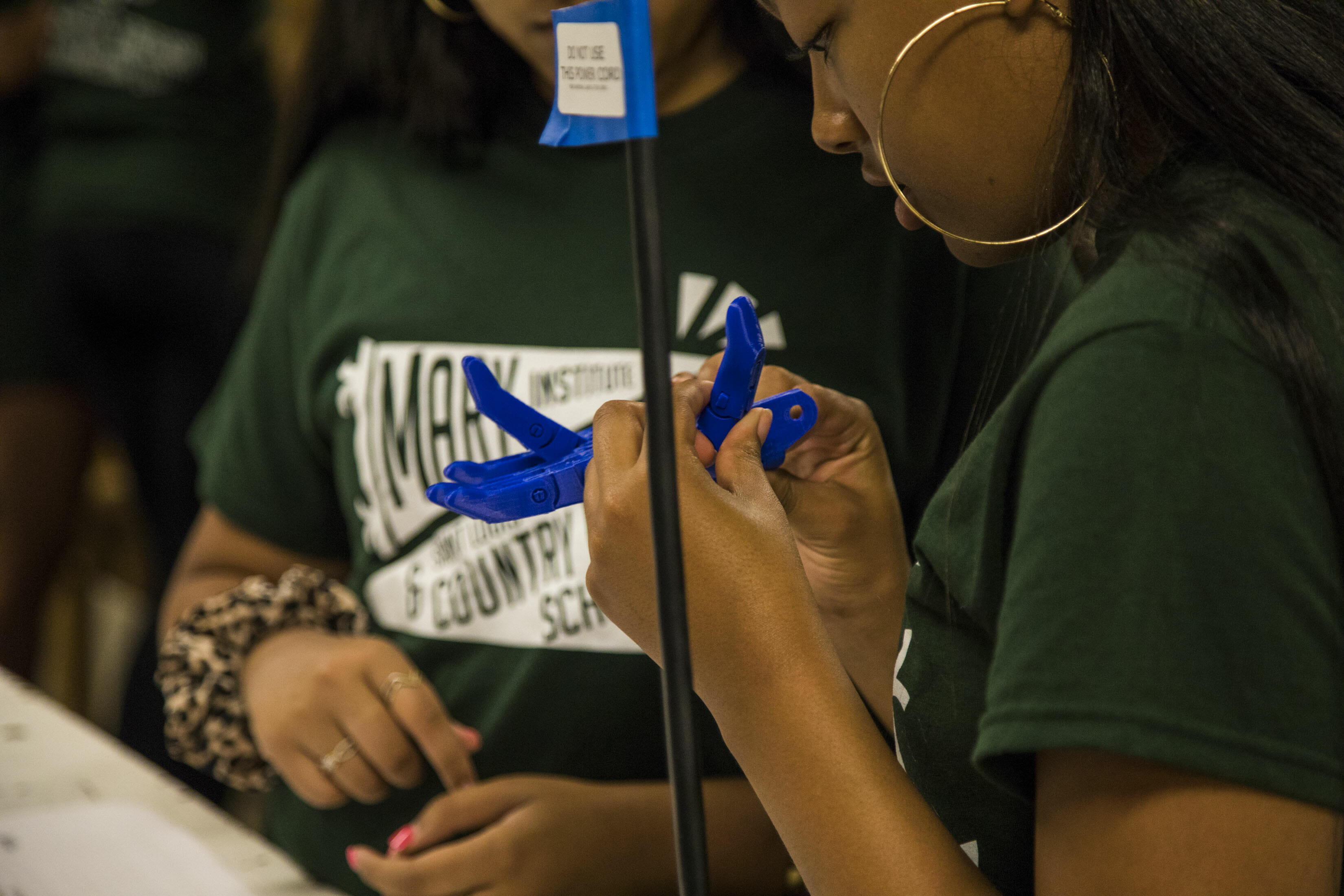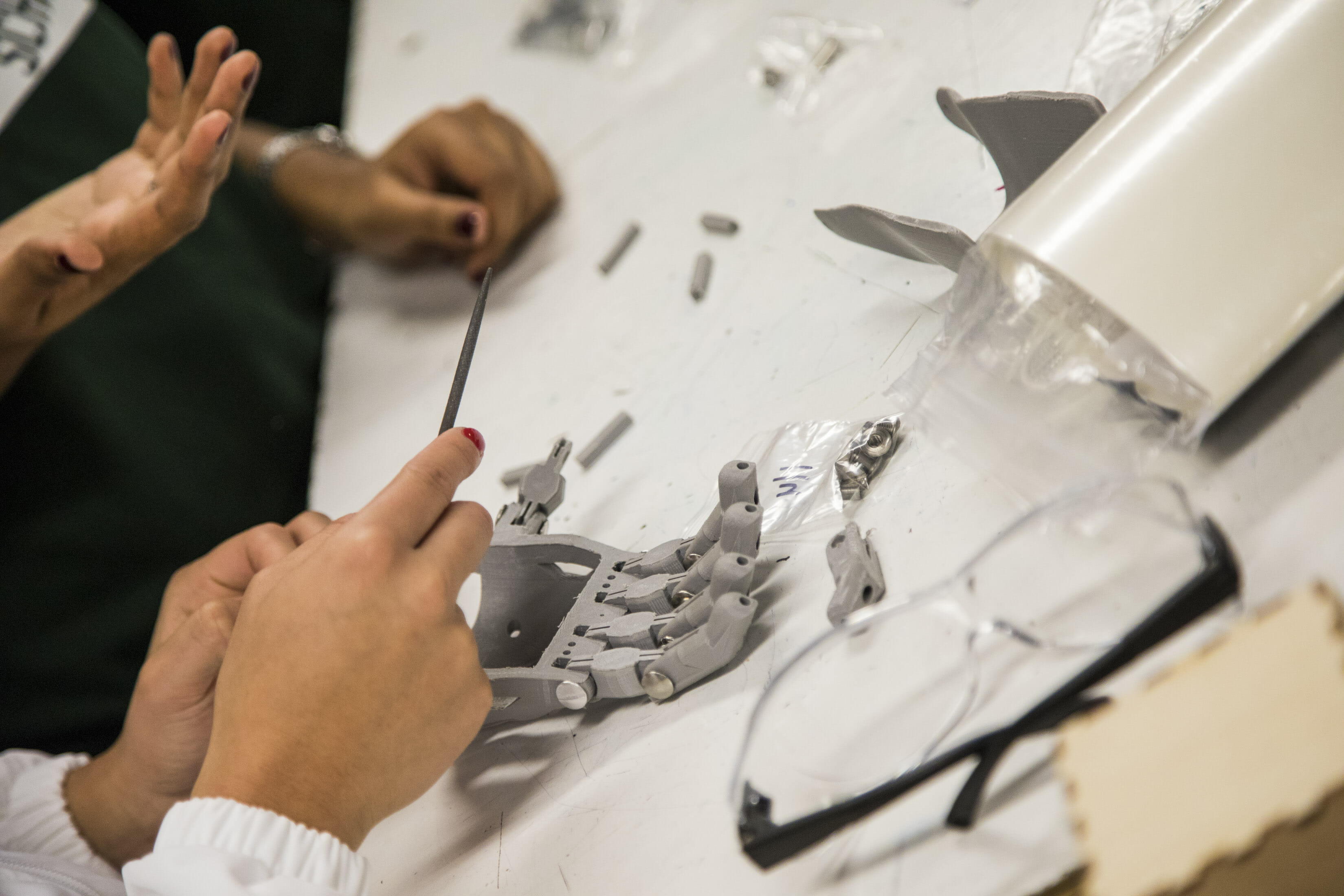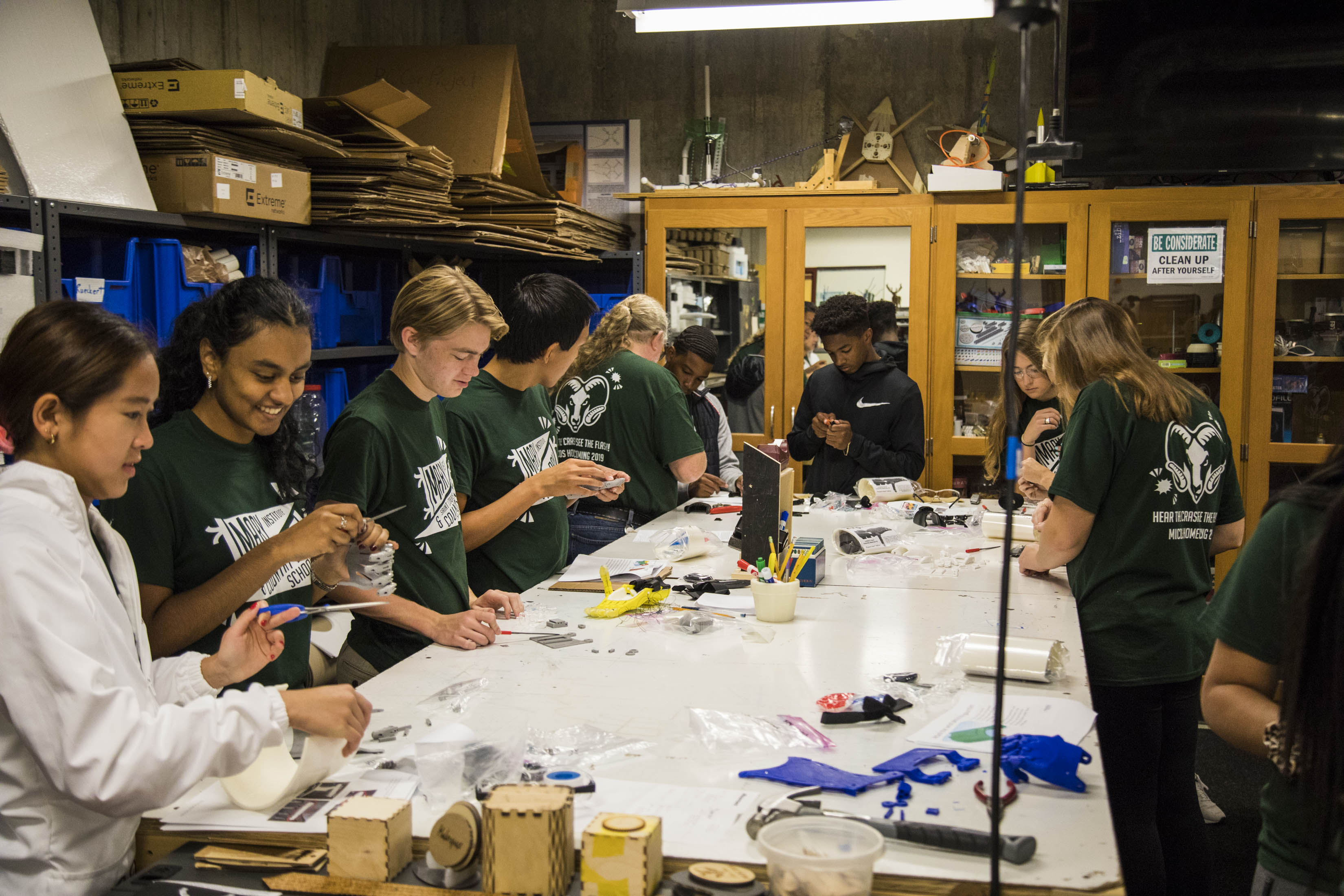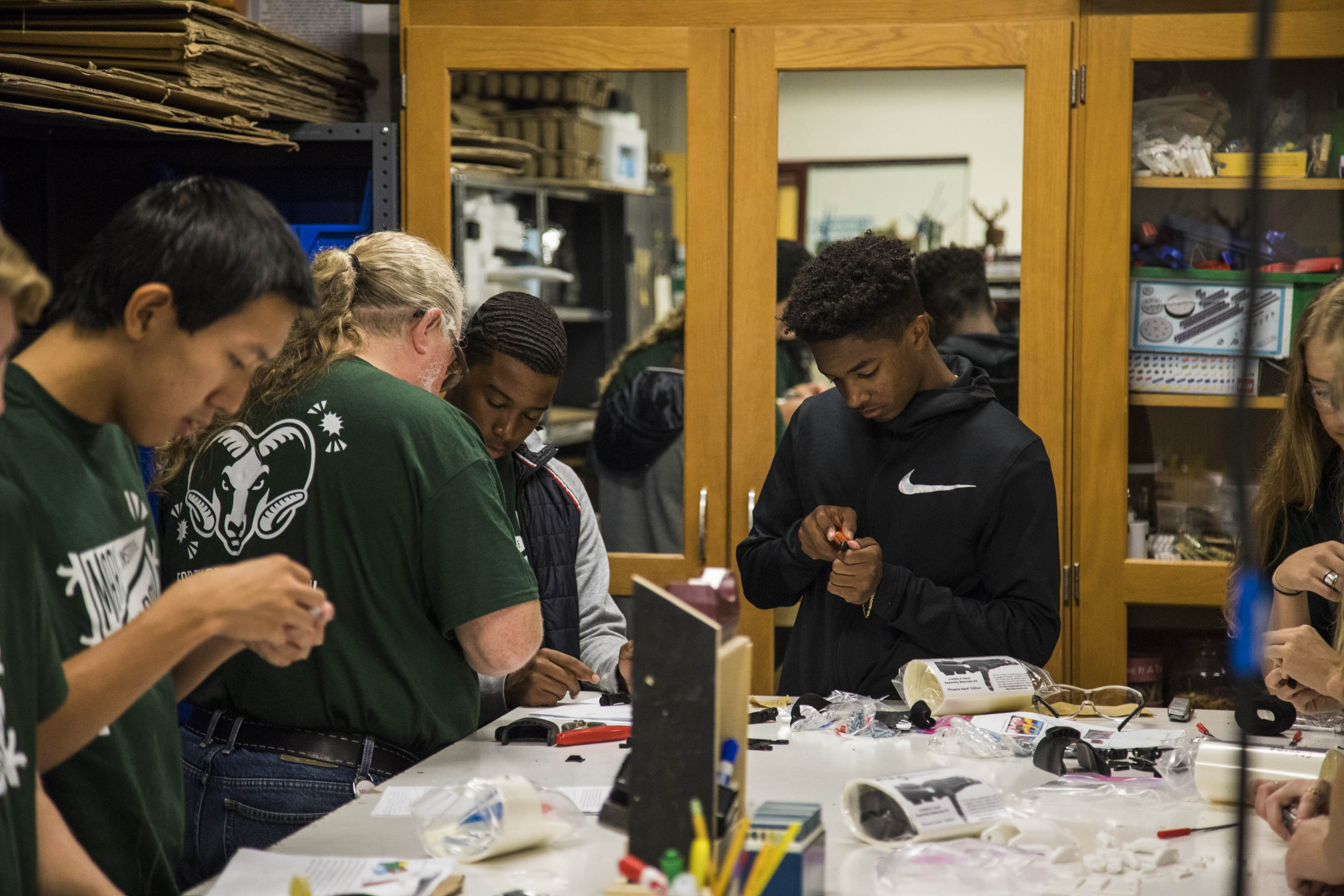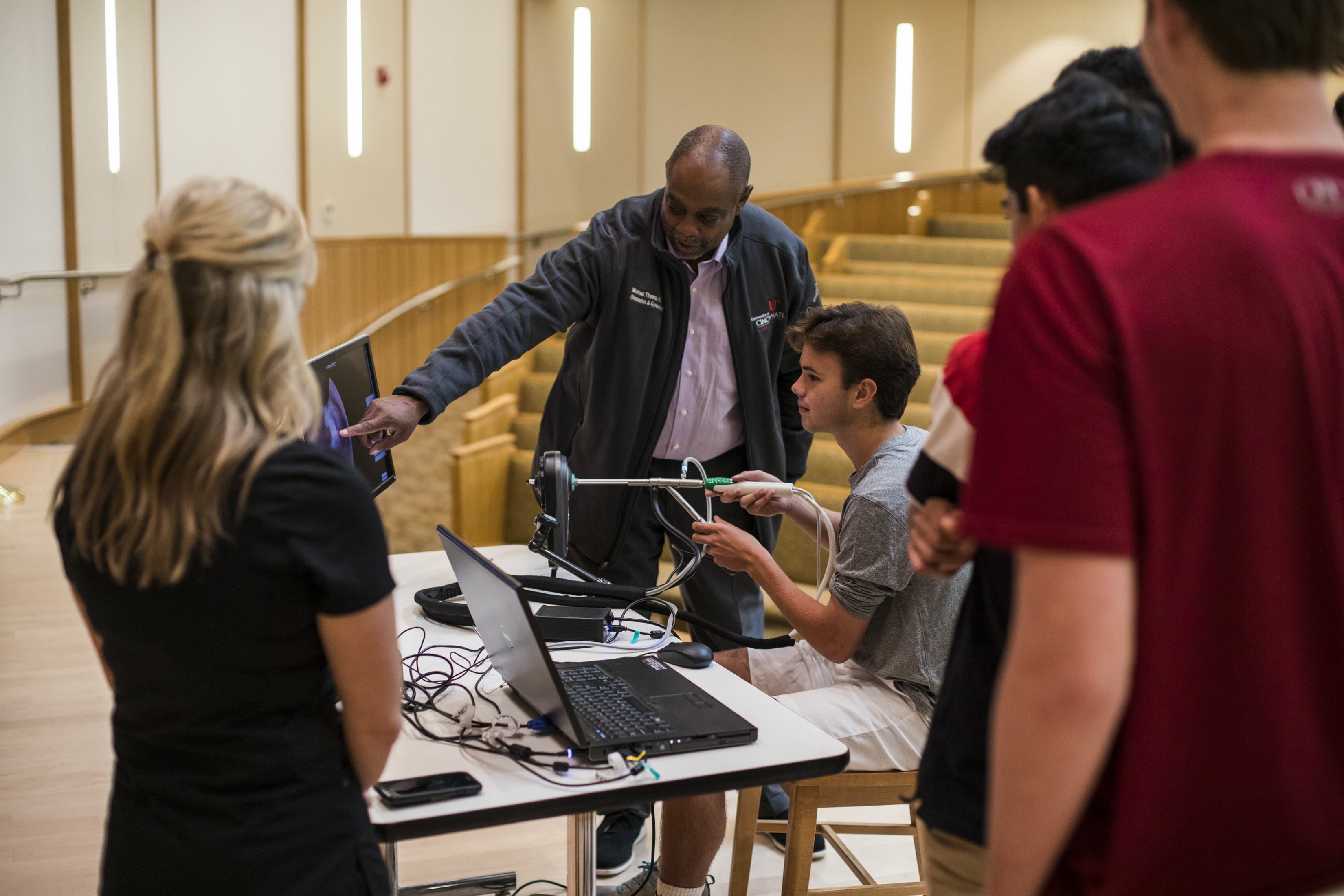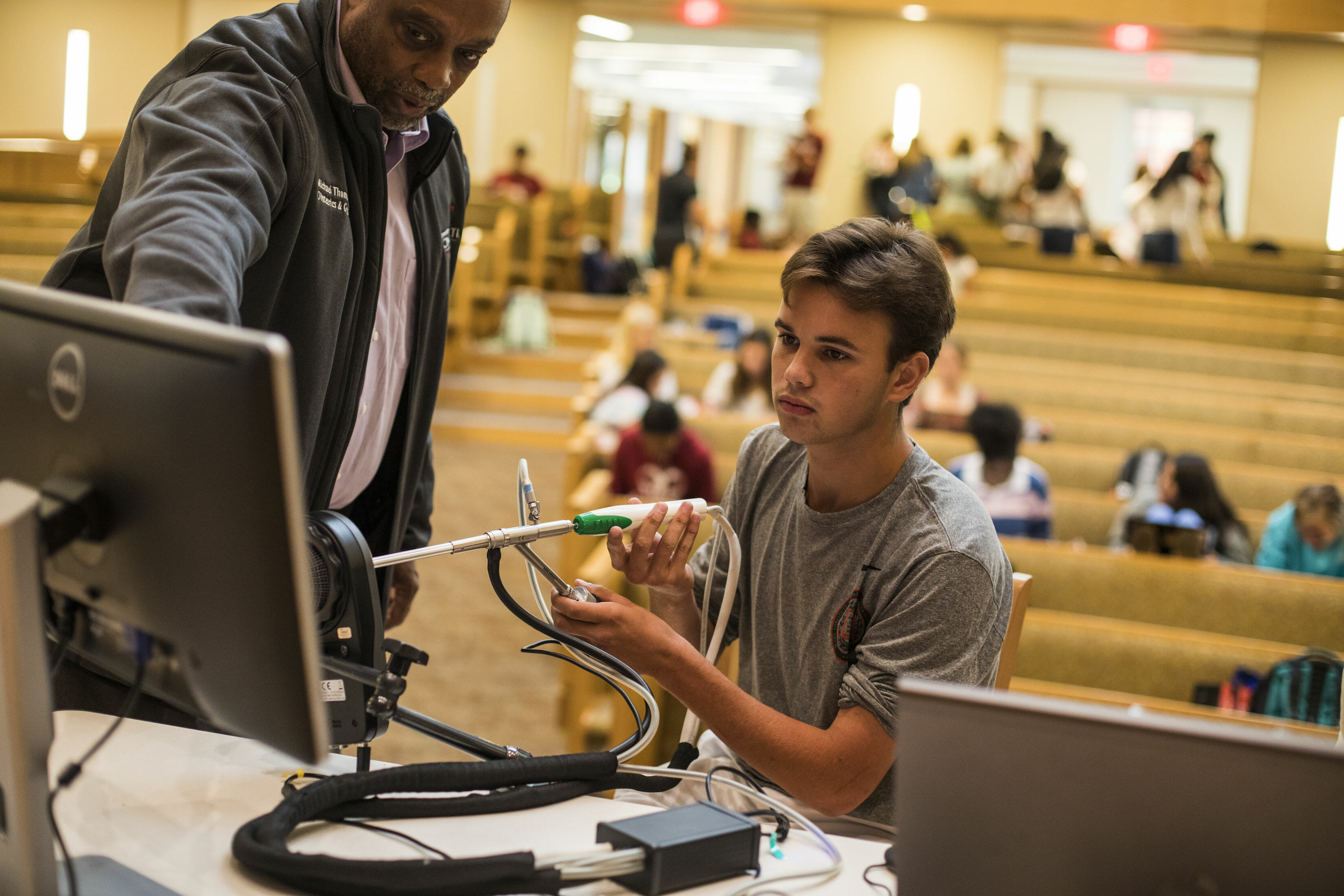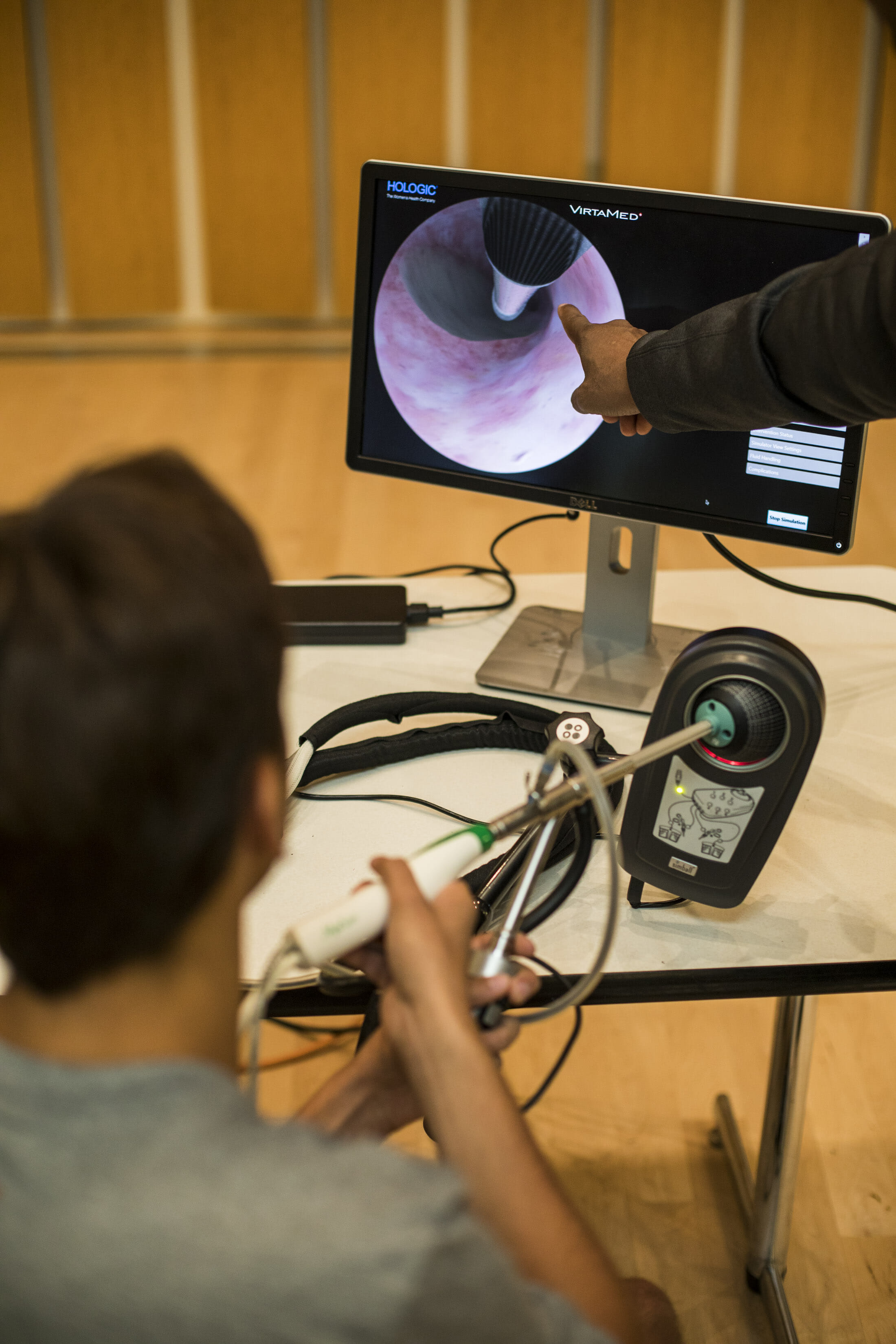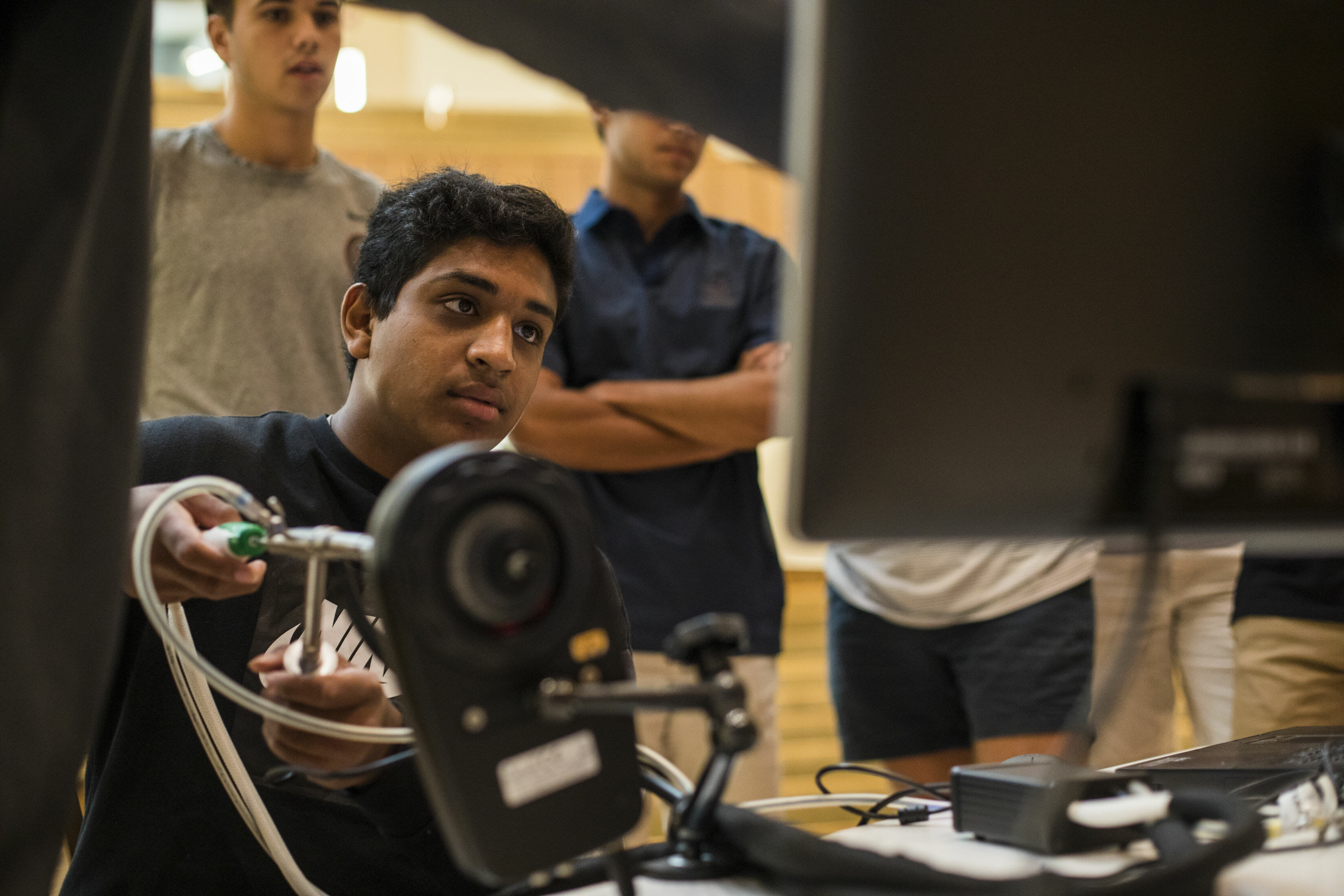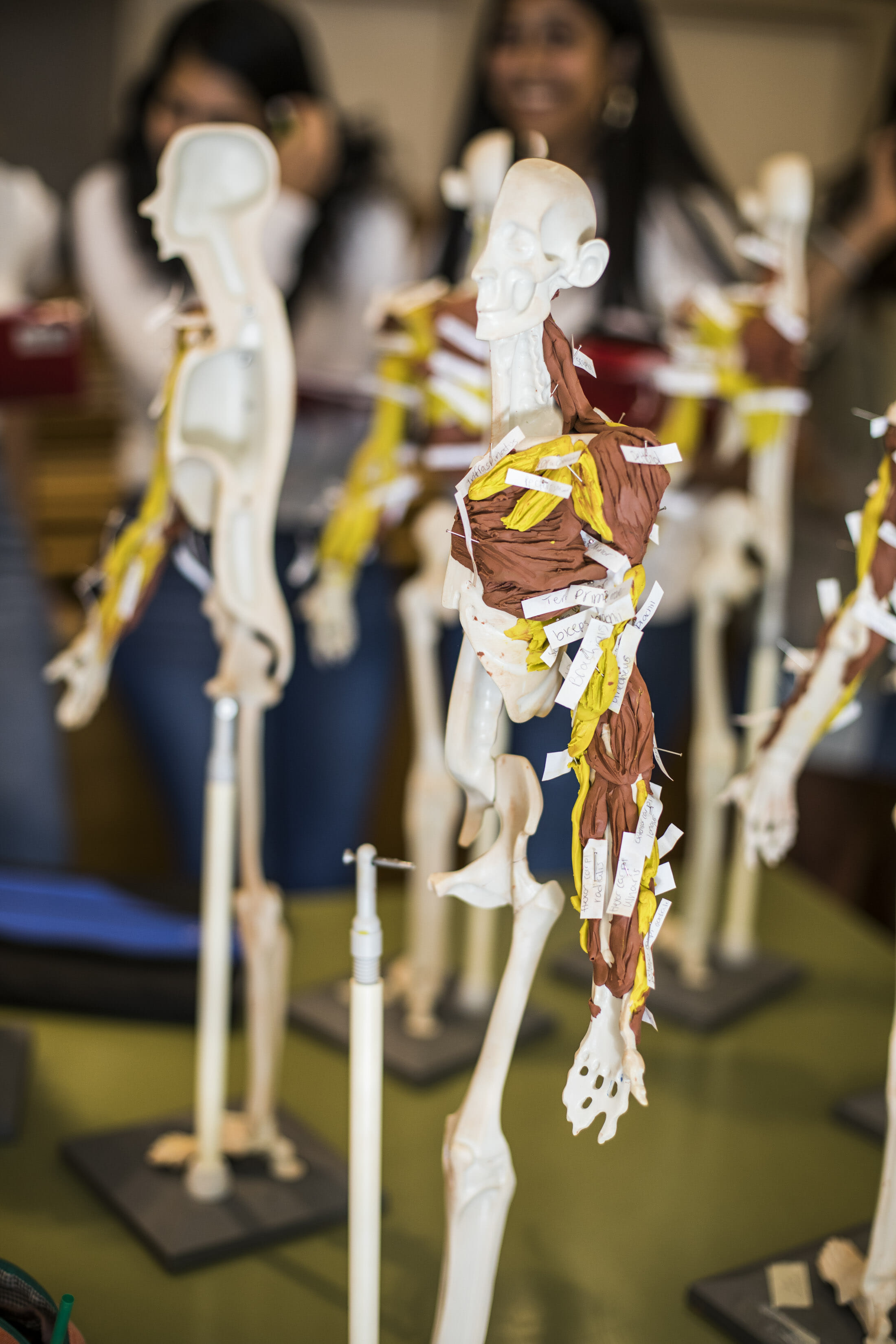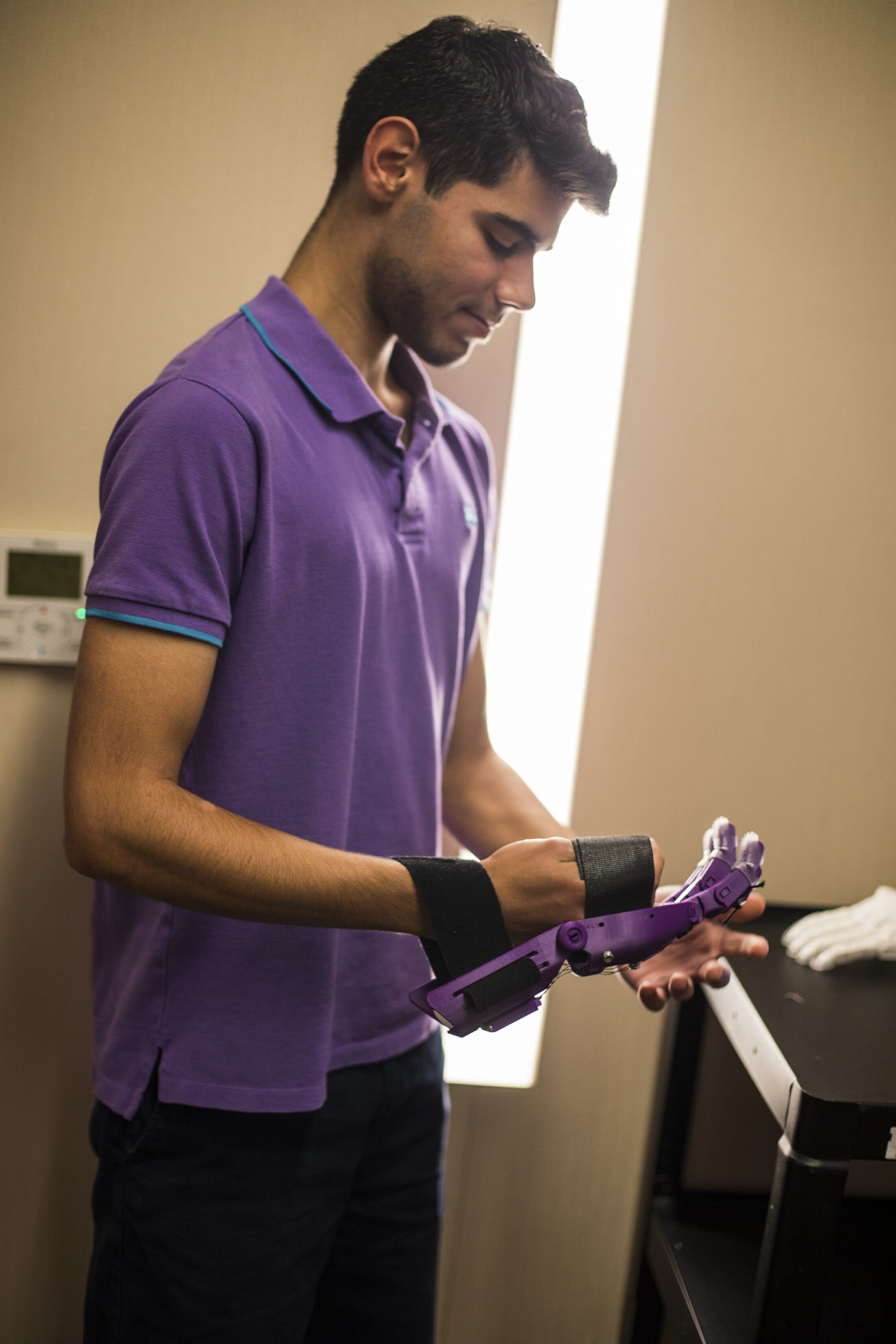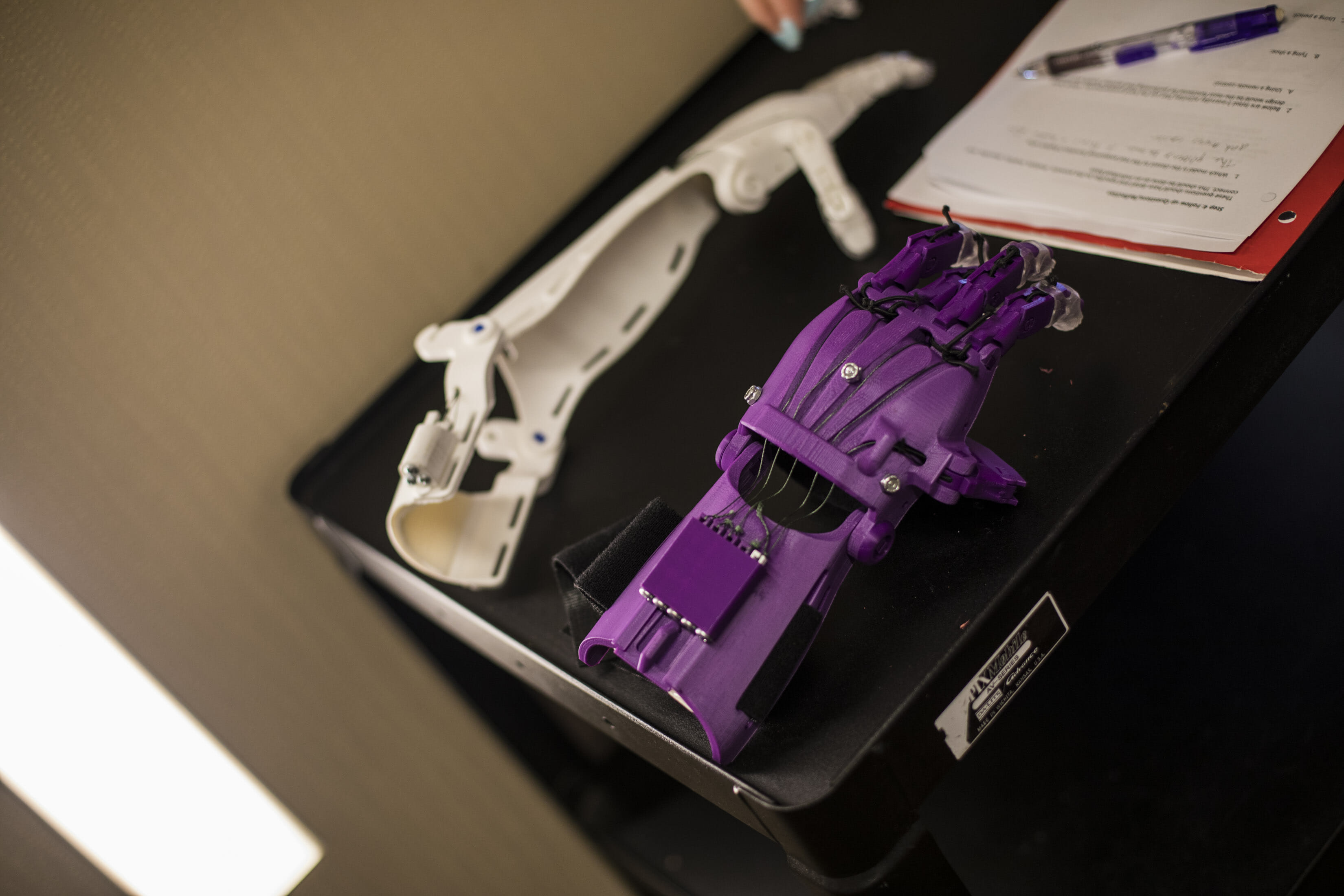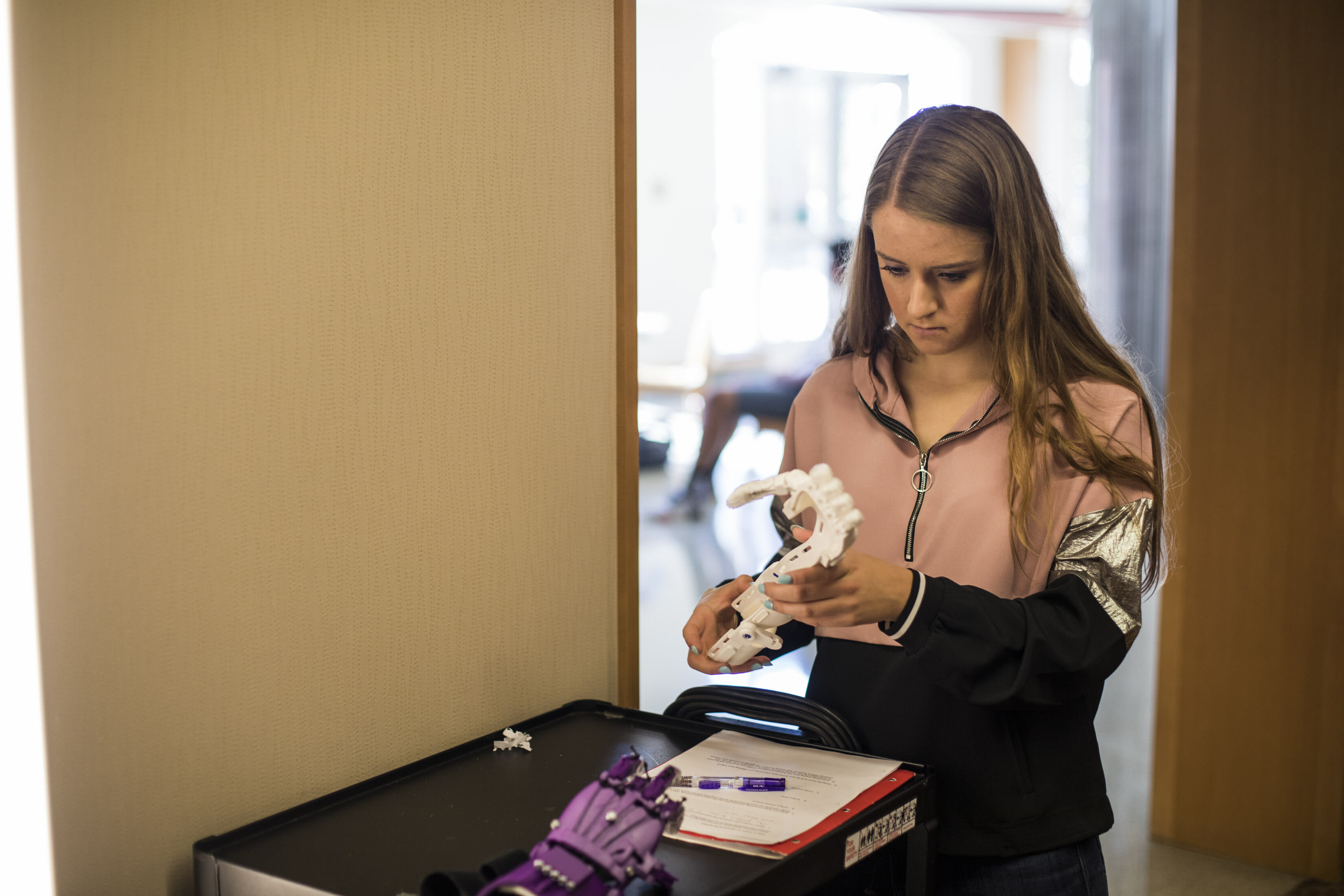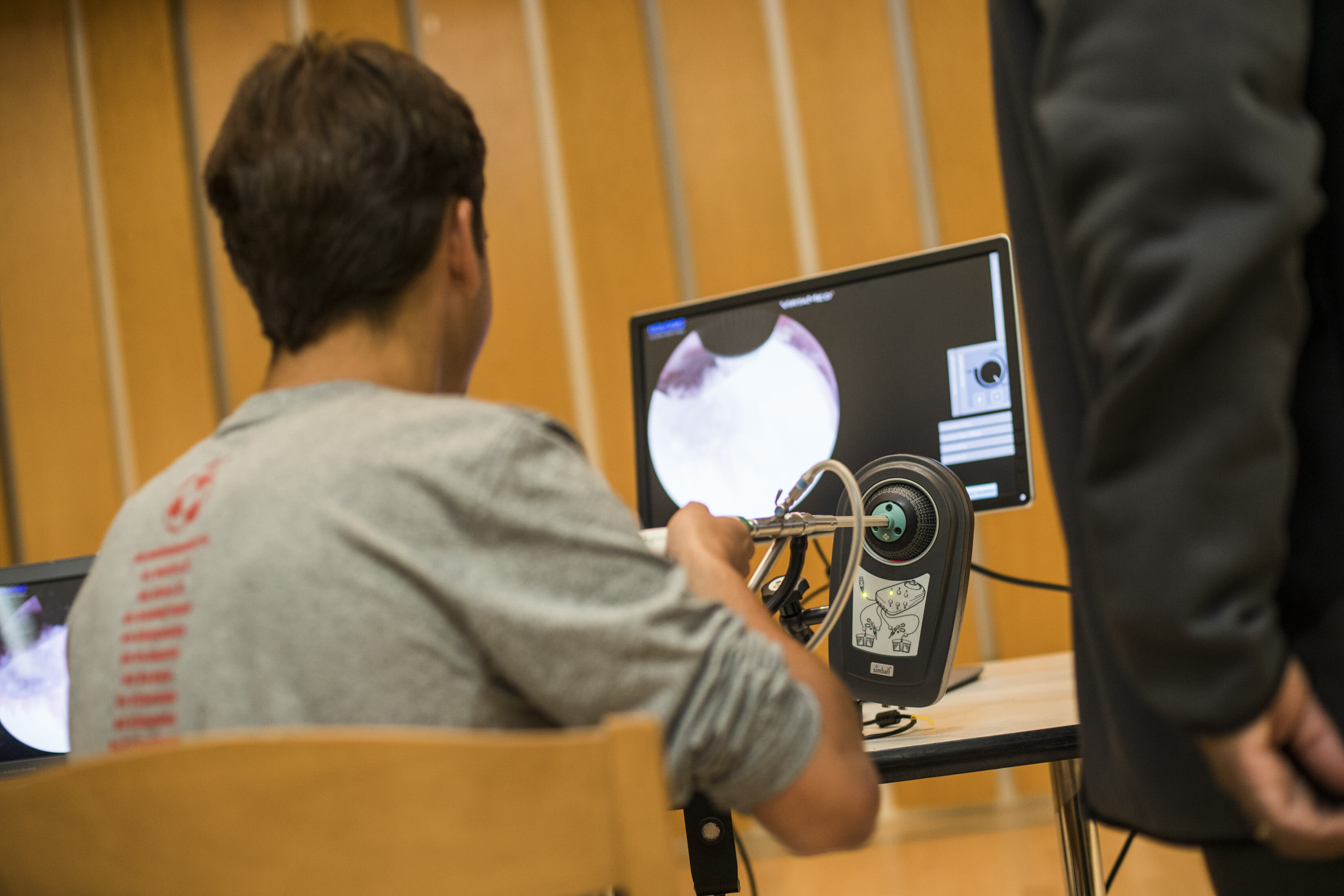Students in Ms. Stacey Morgan’s Kinesiology class are taking advantage of opportunities to learn beyond a textbook. Kinesiology is the study of biomechanical movement, and at MICDS, it’s the first course in the Human Body Science Strand. After students learn the application of anatomical and mechanical principles and gain an understanding of human movement and physical performance, they’ll move on to Sports Medicine and Anatomy and Physiology.
About 60% of the juniors and seniors in the Kinesiology course plan to continue their studies of the human body after graduation. “I have students excited about nursing or physician assistant school, or are planning on becoming cardiothoracic surgeons,” said Ms. Morgan. “The others are just interested in learning about their bodies.” Regardless of their motivations, the students are forever changed by their studies. “I tell them that after this class, they’ll sit in airports and critique how people walk. They’ll notice everything!”
Molly Christopher ’20 said, “I love this class! It is so interesting to learn about how the body moves and all the working parts. Being an athlete, I find it super engaging and applicable to my life.”
One of the first projects they tackled was building three different models of prosthetic hands in the Maker Space. Students use 3D printers to make all the parts required for a prosthetic hand, making a connection between what they’ve learned about movement, anatomy and muscle structure and how hands actually work. They can see that each model works differently and is better suited to certain tasks. Ms. Morgan challenges students to reflect about their lives and how they move, and determine which prosthetic would be best for them based on the tasks they do most often.
Trevon Bobo ’21 said, « The hands were something that took several days for us to construct as we went through varies phases of adjusting, construction and stringing together the functions. This assignment provided a fun challenge for us that forced us to work quickly and made us think about how an anatomical would function in comparison. »
After the unit is complete, the class sends the prosthetics to e-NABLE, an online global community of volunteers from all over the world who are using their 3D printers to make free and low-cost prosthetic upper limb devices for children and adults in need. The hands that are deemed acceptable will be donated to someone who needs a prosthetic.
This week, Dr. Michael Thomas, a reproductive endocrinology & infertility specialist from Cincinnati, OH and the brother of our Assistant Head of School Brian Thomas, visited MICDS with two surgical simulators. Dr. Thomas was in St. Louis to speak at Washington University and graciously agreed to also talk with our students, show the simulators and allow them to try their hand at removing uterine polyps. There are only three of these simulators in the world. Bobo enjoyed trying the simulator. He said, « The surgical simulator was a really great opportunity because it allowed us to work side-by-side with a trained professional who performs these surgeries often. On the simulator, we were testing ourselves to perform a similar surgery that he does. »
This experience is part of Ms. Morgan’s goal to have MICDS students learn about different types of professions that deal with the human body. The class has also heard from a doctor who specializes in studying the iron levels in athletes. Future speakers include Stu Beath who was an MICDS baseball coach for several years and is a strength and conditioning specialist, Dr. Andy Spitzfadden ’92 who is an orthopedic surgeon and team physician for professional athletes, and Dr. James Scharff ’92 who is a cardiothoracic and transplant surgeon.
Attendance at the guest lectures is optional, but students who attend earn badges that they can then “cash in” for other experiences. For instance, a student can attend each lecture, college badge points, and, at the end of the year, turn in their points in exchange for the opportunity to observe a surgery.
The lectures are largely based on what motivates this year’s students. Ms. Morgan surveyed the class at the beginning of the year to discover what areas are of interest to them. She’s recruited speakers based on their suggestions, giving them a direct connection to their curriculum. She has also been working closely with Ms. Louise Jones, Director of Alumni Relations, to recruit guest lecturers. If you’re interested in volunteering your time to work with our Kinesiology students, please reach out to Stacey Morgan at smorgan@micds.org.

